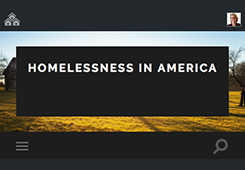
Preparing for the Election and Its Aftermath With Your Students
by Dana Grossman Leeman, Ph.D., MSW
October 26th 2020
We are are quickly approaching the 2020 election and for most faculty and students, the next several weeks will be deeply stressful. At at time when college-age emerging adults are already experiencing a great deal of emotional dysregulation, faculty will be looked to to be the ballast for their students while experiencing their own complex feelings about current events. While it is not incumbent upon faculty to be the only emotional support for their students, they may be the first person with whom students interact on Election Day or directly thereafter. With this in mind: How can we prepare ourselves and our students for election eve and the early days after the election when there is likely to be social, political, and emotional turmoil?
Compassion, Empathy, and Attunement go a long way
Acts of compassion and empathy, and attempts to tune in to the authentic experiences of colleagues and students can combat feelings of social isolation, disconnection, and disaffection that attend grief. The election this year, regardless of party affiliation or outcome, will inevitably evoke strong emotion in many people. We may grieve disconnections from friends or family who hold political ideologies counter to our own. Compassion toward ourselves and a willingness to give ourselves permission to grieve enables us to demonstrate compassion and empathic attunement to others. Brené Brown postulates that empathy drives connection while sympathy creates disconnection. At an already fractured time, striving for empathic connection is not only necessary for coping and for finding the internal strength to remain invested in our work, it is also essential for remaining invested in activism or civic engagement. As faculty, you are in the unique and privileged position to make room for your students and colleagues to be together and with you in a caring space, whether or not they choose to talk about the election or the future it portends. This will require some planning and intentionality on your part.
Plan and Prepare Together
Dr. Nancy Thomas, Director of the Institute for Democracy and Higher Education at Tufts suggests that that faculty begin to explore student expectations and needs for the day of and days following the election now! In the next few days, you might reach out to your students with a very brief anonymous survey. Some possible questions you might ask:
- What are your needs and expectations for this class on Election Day?
- What are your needs and expectations for this class in the days directly following the election?
- Given that the election is emotionally charged for most of us, and the outcomes will impact us differently, what are some suggestions for parameters with regard to discussions about the election in this class?
- What agreement can we come to about how to have conversations in the days following the election and how much to discuss it?
This survey can be done through a Google form, or a Qualtrics survey to be anonymous. Doing this now will give you time to process the results with the class, come to some consensus, and devise a strategy for coping as a learning community.
Some other considerations
- Plan ahead for what you think you will feel capable of doing. There are other resources to point students toward for support and mental health, and the classroom is not the place for debriefing all of our emotions.
- Students may not want to talk about it in every or possibly any class, and that is reasonable. If you do have a conversation, you may want to set a time limit. Or it can be a non-verbal interaction, like “post on the whiteboard or using PollEverywhere, an emotion you are feeling right now”.
- Some classes might be more suited than others to have a discussion related to the content of the course. And it may be prudent to wait for some time to pass.
- You might feel more or less equipped to facilitate a discussion, and may just want to acknowledge that you know that this is an emotionally charged moment, even for you, and begin with a short meditation.
- Requiring a major assignment or exam in this week might disproportionately affect students, and you might take that under consideration.
Additional Resources
- Post-election resources, a collection from Tips for Teaching Professors. This includes a terrific animated short with Brené Brown talking about empathy.
Tufts Resources for Social and Emotional Support
- If you notice a student in need of emotional support seek guidance from Tufts’ Counseling & Mental Health
- Tufts University’s Election Week events and opportunities
- Join CELT’s Faculty Roundtable on November 4th from 9-10 am: Put on Your Oxygen Mask Before Assisting OthersThe purpose of this roundtable is to provide a space for faculty to connect with each other, process their own feelings, and marshal resources and strategies to effectively support students in the days immediately following the election. Zoom Link: https://tufts.zoom.us/j/96291173693?pwd=bUwwTks2V0dkNUY1Q0d0dGxpa29pUT09
- Resources from Tufts Mindfulness & Resilience Collaborative



